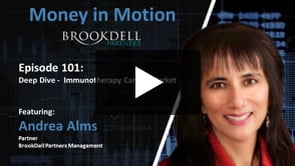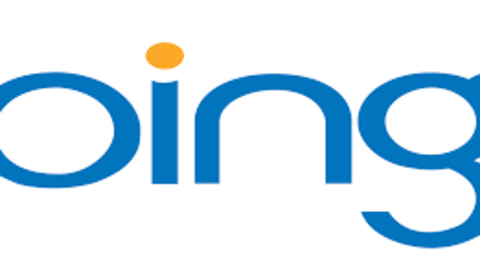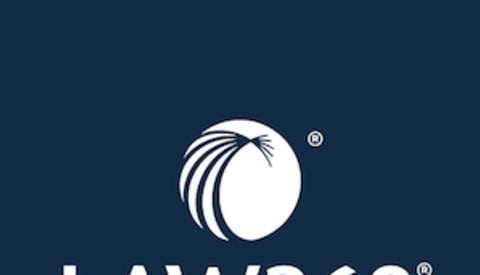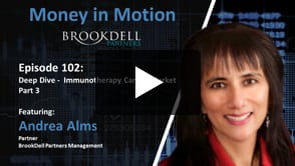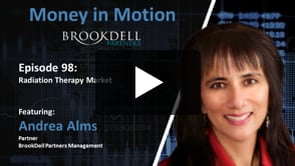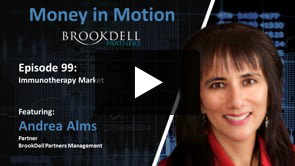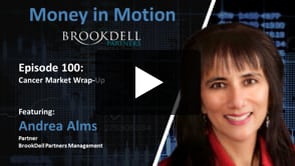Private Equity Dashboard:
Top Private Equity News, Member Posts, Managed Futures Daily Indices and more!
Navigating the new normal
Submitted 25/01/2021 - 2:10pm2020 saw unprecedented pandemic-induced turbulence on the political, social and economic arenas not seen for decades. While some of the major private equity groups on the global scene – the likes of KKR, Blackstone and Apollo – managed to draw on dry powder, scoop up distressed assets in the wake of the turmoil, and launch new credit funds amid the financial havoc, there are many firms who have struggled with keeping their portfolio companies afloat while coping with vast demands on management. We also witnessed debut managers experience increasing hurdles.
The `new normal' brought on many challenges as well as opportunities, including working from home, and a drastic decrease in travel while moving industry events online. This shift to virtual activity presented investment opportunities, particularly in online learning, remote working tools, cyber security, food delivery and online shopping, among other sectors.
It also saw practices including fundraising, due diligence, deal making and networking move online, with its ensuing obstacles, which also brought about new and groundbreaking ways of navigating key processes. Some of these changes will be permanent; some won't – seems to be the sentiment among private equity investors active in the market.
While we process and ponder major shifts that occurred during the pandemic both on a professional and personal level, the industry now turns its gaze toward 2021 and the developments it will bring for GPs in the course of managing their portfolios.
This year's Private Equity Wire Global Outlook report will look at poignant themes covered by active managers and how they think about investments in the coming year and beyond, as the uncertain global economy aims to successfully find a way out of the current crisis.
Private Equity Wire would like to extend its warmest gratitude to everyone who contributed their valuable insights to this year's report. Enjoy!
Karin Wasteson
Editor, Private Equity Wire
Chapter 1: The macro picture
What is the biggest challenge facing the PE industry as we move into 2021?
Nils Rode, Chief Investment Officer, Schroder Adveq
Looking ahead, investors face very diverse prospects across the major economies. Investors need to take into account multiple variables, including demographic developments, changing global trading relationships and economic stimulus (or lack of it) in forming an investment strategy.
Private equity has the flexibility to generate returns in different types of environments, given a broad range of return drivers. These range from consolidation strategies – with buy-and-build investments in lower growth economies – to growth investments in younger, privately held firms in higher growth parts of the world. Additionally, innovation-based strategies with venture capital funding play a role in all types of macroeconomic environments, due to their relative independence from economic and financial market developments.
A key risk factor that investors should look out for arises from the increasing investor interest in the asset class. This trend can lead to strong inflows of capital into certain segments of the market, which in turn may have a negative effect on future return expectations. As more and more investors are willing to accept and are even actively seeking illiquidity, it is safe to assume that the “illiquidity premium” is decreasing, even though this is hard to measure.
What is becoming ever-more important therefore is what we call the “complexity premium”. This means that investors are rewarded for making investments that are difficult to find, identify and to access. They are fundamentally transformed during the holding period based on special skills, networks and resources and, at time of exit, are attractive and accessible to a wide group of potential acquirers or investors. Examples include: small buyouts, emerging managers, co-underwriting for direct/co-investments, specialised secondaries, turnaround, seed and early-stage technology and biotechnology investments, early growth investments in Asia and Chinese onshore RMB investments.
Jared Barlow, Partner, Kline Hill Partners
The biggest challenge for the PE industry in 2021 will be to make sense of lofty valuations and finding proprietary transactions considering the significant amount of private capital pursuing transactions. And doing so while the economy continues to struggle with an uncharted pandemic landscape and while broader geopolitical risks remain.
The Covid-19 disruption in 2020 was unexpected and resulted in an initial freeze in private market deal making, but transaction activity and valuation multiples are springing back to pre-Covid levels quickly. PE and VC firms still face significant competition seeking out differentiated transactions at reasonable price points. Deal activity in 2020 has been relatively muted and as a result there is increasing pressure on PE and VC managers to deploy capital. If the economy is recovering, then undoubtedly deal activity will rise in 2021, and potentially tremendously so. But finding attractively priced targets at historically high valuation levels will be difficult. Are valuations in this environment reflective of the risk being taken by these companies given broader market uncertainties?
Our view at Kline Hill is that “small is beautiful” when it comes to beating market returns and managing macro risk. Differentiated returns will be found in hand-picked and prudently diligenced smaller transactions that are off the radar of larger auction processes and where leverage and valuation are moderate.
Dave Tayeh, Head of Private Equity, North America, Investcorp
The story from 2020 required resilience amidst unprecedented disruption from the pandemic, including the steepest recession since the Great Depression. In the spring, GPs primarily focused on managing existing portfolios through the immediate shock and the industry has successfully adapted to operating in this new environment.
Since then, we've seen a resurgence in sentiment and deal making. The rapid and aggressive actions from central banks have supported the markets but have also boosted valuations, even relative to pre-pandemic multiples that were already at historic highs. The key question and challenge for 2021 will be how GPs position themselves and their portfolio companies to win in what may continue to be a volatile and unpredictable market.
2021 could be a year of two drastically different operating environments given the anticipated distribution of vaccines. The recovery to-date has been extremely uneven and anyone making a bet on the timing of how and when behaviours will shift has a difficult task.
GPs and portfolio companies will need to stay agile to assess and determine what has been a temporary shift vs what has been a longer-term structural change. At Investcorp, we invest in industry-leading business services companies. These companies are supported by long-term secular growth trends that we believe position them well to succeed both during and post-pandemic.
Private equity has proven its ability to deliver value across multiple cycles and its outperformance relative to public markets is often most pronounced following recessionary periods. We believe investors searching for yield will increasingly allocate funds to private equity and alternative asset classes as extremely low interest rates make it challenging to generate acceptable returns. In private equity, value is not created by merely buying a company but rather by improving its operations and accelerating its growth. This is why we have specialised expertise in the six verticals on which we exclusively focus: technology-enabled services; knowledge and professional services; data and information services; supply-chain services; industrial services; and consumer services.
Private equity has constantly adapted and thrived over the course of its history, including during this extremely turbulent year, and there is no reason why 2021 should be any different.
Sam Loughlin, Founding Partner & Chief Executive Officer, Paceline Equity Partners
We believe the biggest challenges facing the PE industry in 2021 will stem from the asymmetric economic recovery. The large divergence in economic performance across industries has created a narrow set of public and well-funded private companies which benefited from the “stay-at-home” economy and other associated trends. Additionally, borrowers in the investment grade bond market have benefitted from a 60 percent year-on-year increase in new funding at record low borrowing rates. These borrowers, typically very large companies, are applying both their significant market power and effectively limitless liquidity to leverage permanent market share gains at the expense of small- and medium-sized businesses.
In contrast, small- to medium-sized businesses (especially those impacted by Covid-19) have significantly smaller cash reserves and limited access to new capital. While certain stimulus measures under the CARES Act were crucial in helping these businesses, that stimulus has largely been exhausted and if renewed in 2021, will likely be much smaller. Thus, even with wide deployment of a vaccine, many of these businesses will need fresh infusions of capital and turnaround assistance – something current equity holders may not be willing or able to do alone. Further, a new US administration and the prospects of UK's Brexit coming to fruition raise a global spectre of a number of political, regulatory, trade, and employment-related outcomes that can only exacerbate the current climate.
Thus, in 2021, the PE industry will face considerable challenges to navigate a market which we see as being truly bifurcated – both in terms of deploying equity and managing through troubled portfolios. Valuation multiples for industries that fared well through Covid-19 have reached all-time highs, which leaves little room for error at current entry points. In summary, 2020's winners and losers will continue to see significant risks, making investment decisions difficult in light of the lack of precedent for the factual underpinning of today's market.
Chapter 2: Fundraising environment
What will be the main fundraising trends in 2021?
Ben Eakes & Brian Hegi, Partners, Crossplane Capital
Coming from the perspective of an emerging manager that raised the majority of our inaugural fund after the pandemic hit the United States, 2021 will be a challenging fundraising environment for emerging managers. Given restrictions on travel and in-person meetings, LPs will put an even larger emphasis on re-ups with established GP relationships. In the absence of in-person meetings, LPs will rely on their trusted network, including other LPs, trusted advisors and off-sheet references, to augment their underwriting that otherwise would have happened in person.
In the coming year, four primary attributes will be key to fundraising success for emerging managers as LPs continue to conduct initial meetings and fund diligence virtually. First, funds will need to have meaningful operating capabilities with the ability to drive step function improvements at the portfolio level while also creating downside protection in an unpredictable economic environment. Second, the investment team will need to have significant experience working together across all points of an economic cycle to remove the risk of the team dynamic not working long term. Third, the firm will need a targeted and differentiated strategy to stand apart from other well-established, generalist private equity firms. Finally, closing attractive acquisitions that provide real-time case studies of the firm's ability to source and close transactions that fit squarely within the stated investment strategy will be critical. For institutional investors to invest in an emerging manager in 2021 will take significantly more work than underwriting one of their established relationships, so managers will need to be clearly differentiated amongst the crowded private equity landscape.
With the additional hurdles emerging managers will face in 2021, investing in a placement agent to help identify active LPs with emerging manager mandates will improve the likelihood of success. In our situation, Eaton Partners was instrumental in keeping fundraising momentum going as the pandemic hit the United States.
Adam Turtle, Partner & Co-Founder, Rede Partners
Moving into 2021, the outlook remains uncertain. Overall, we expect a less liquid environment for fundraising than we were used to pre-Covid, with greater challenges getting investors to engage, more fall-out in diligence, and a generally “risk off” mentality, at least in H1. Never has it been more important to define your specific recipe for successful deployment than in the years ahead, and we anticipate the continued bifurcation of outcomes that has become a hallmark of fundraisings over the past few years. Successful adaptation will be key.
Certain strategies, particularly those focused on healthcare, technology and sustainability, will be in high demand, but we also predict graduating towards more dislocation oriented / value investment approaches as the year progresses and the realities of rebuilding post Covid comes into sharper view.
At the same time, we see encouraging signs that LPs are also adapting to the new environment – with our recent survey suggesting that 46 percent of LPs expect to make a new commitment in 2021 to a GP they have never met in person. The industry has also continued to mature, and LPs are more open than ever to “creative” concepts, including platform extensions and GP-led secondary solutions.
Will it be the end of the roadshow? I doubt it. However, we do believe some of the features we have all got used to – more use of digital tools, acceptance of video conferencing and more creativity in electronic desktop material, can and should persist once the pandemic is behind us. This should reduce some of the travel excesses that haunt our industry, which if so, would be good for both efficiency and our industry's carbon footprint.
Chapter 3: Global deal outlook
What excites you most about the deal landscape for the year ahead?
Thomas McComb, Private Equity Portfolio Manager,
JP Morgan Asset Management
In spite of the Covid-19 pandemic, we have seen an unprecedented level of high quality co-investment opportunities from our top tier General Partner (“GP”) relationships. We believe there are several drivers of this activity:
1) Demand from active Limited Partners (“LPs”) who desire carefully selected co-investments to provide return enhancement and J-Curve mitigation to their private equity portfolios;
2) Political, fiscal, and economic uncertainty combined with robust asset pricing which may be driving business owners and entrepreneurs to sell; and
3) GPs who are sourcing transactions with equity stakes that require them to offer co-investment to meet their fund's diversification requirements. Co-investments also provide those GPs the opportunity to broaden and strengthen their LP relationships, which will increase the likelihood of their firm's long term success.
Many of our General Partners are offering co-investments in buy and build opportunities where they pursue an investment opportunity through a platform company supplemented by smaller add-on investments. The add-ons are typically acquired at lower purchase multiples than the platform which allow the GP to make an investment at a more modest overall purchase multiple than they otherwise would in the current elevated pricing environment. These investments are typically focused on industry sub-sectors with substantial fragmentation that will allow a successful buy and build investor to create economies of scale and generate a sustainable competitive advantage.
Additionally, the implementation of a buy and build strategy can result in the formation of a larger company during a private equity firm's ownership. As larger companies typically command higher earnings multiples than smaller ones, the PE firm who owns the company may be able to take advantage of multiple arbitrage when it is time to exit the investment providing additional return enhancement beyond that driven by earnings growth.
David Belluck, Co-Founder, Riverside Partners
At Riverside Partners, we are excited to begin 2021 from a position of strength. We managed to weather through the ongoing pandemic by focusing on our existing portfolio companies while completing one of our most productive years in our 31-year history from a capital allocation perspective. To date, all of our healthcare and technology portfolio companies remained operational and maintained adequate liquidity to meet working capital needs. Further, we deployed USD150 million into two new platforms and finalised two transformative merger combinations of existing assets.
Looking forward, we remain optimistic in our team's ability to continue executing its proven investment strategy of partnering with founder-owned businesses and providing capital to support growing technology and healthcare companies.
Joshua Adams, Managing Director & Global Head of Business Development, OpenGate Capital
In short, the pent-up demand following the challenges of 2020, for both buyers and sellers. Sellers, such as large global corporations, where OpenGate have a tremendous success in partnering with and executing complex carve-outs, have used the past 9 months to look at their portfolio to assess the short-, medium- and long-term strategy resulting in what we expect to be a record high for carve-outs in 2021.
This coupled with the abundance of dry powder from the private equity community suggests an active year ahead.
Finally, the need for growth in 2021 will be at the forefront of both public and private companies to mitigate the challenges that the pandemic brought and thus inorganic growth in the form of add-ons will continue to play a strategic role in private equity backed portfolio companies.
Andre Puong, Partner, Cathay Capital
What excites me the most about the PE space for the year ahead is the continued low-interest environment and the new opportunities in previously niche segments that are expected to grow as a result of new trends such as digitalisation or sustainability having accelerated this past year.
Evolution of the fashion industry
2020 turned the fashion industry on its head. The days of high fashion models on catwalks, large fancy department stores and fashion magazines are fading into the sunset. We expect to see 2021 further accelerate this evolution and brands will increase digital marketing spend to attract consumers.
The silver lining to this is the shift of power back into the hands of the brands. The playing field will be levelled for new brands entering the market as they won't have to depend on the fashion “machine” to launch a new line of jeans or jackets. But competition will be fierce and brands will need to deliver more directly than ever to the consumers on their promise of experience, sustainability or whatever they claim as their value proposition.
Marketing spend will bounce back and creative agencies would be interesting businesses to invest in. So would be technology that aid the aforementioned delivery of the brand experience, which will be increasingly via digital channels.
Toy industry will go back to basics
With everyone spending more time at home and less time at movies and amusement parks, there is an increase in demand for kids' at-home entertainment. Over the past decade or so, toys related to blockbuster movies such as Avengers or Frozen have been grabbing the attention of kids all over the globe.
The essential shut down of the movie industry due to Covid has diminished the toy industry's reliance on licensing from big media companies like Disney and Marvel to drive sales in 2021.
As such this year will be a great time for smaller toy manufacturers to break through the noise.
What aspect of deal sourcing will the team be emphasising in 2021 as you look to put dry powder to work?
Jason Barg, Partner, Lovell Minnick Partners
Lovell Minnick looks for differentiated deal flow where our focus on mid-market financial services and technology firms can be an impetus for accelerated growth. We believe our deep expertise in the financial services sector enables us to source interesting opportunities and get in front of target companies early, which is critical when looking to partner and build a relationship with these businesses.
As the world normalises and deal flow picks up, we will continue to focus on getting to know companies and developing relationships with them. We've certainly become accustomed to doing this via Zoom, but we're excited to resume in-person meetings, hopefully at some point in 2021. Our primary goal as an investor is to understand where these interesting companies play and the value we can bring as a collaborative partner.
Our focus on relationship-building has served us well in 2020, as we experienced a very active year on the bolt-on front and signed or closed over 20 bolt-on acquisitions. Often times, the firms being acquired by our platform companies have long-standing relationships with the management teams and our firm due to our experience and history in the financial services sector.
We saw firms this year turn to those existing relationships, and we expect our momentum to continue into 2021 as businesses further appreciate the importance of choosing the right partner coming out of the pandemic.
Where will you be focusing your investment plans over the next 12 months?
Davis Noell, Senior Managing Director and Co-Head of North America, Providence Equity Partners
In 2021, Providence will continue to focus on its core sectors, including media, communications, education, software, and services across North America and Europe. We are particularly interested in opportunities with strong organic growth and accretive M&A potential as a good way to offset the high valuations in today's market. We are still big believers in some parts of traditional media that were meaningfully impacted from Covid, and foresee a strong revival in live events and out-of-home entertainment given pent up demand.
The pandemic created some unique opportunities in media, communications and education that we had not seen in more recent years. We were fortunate to make an investment in Outfront in April, with the thesis that the market dislocation would be temporary and out-of-home was the most enduring form of traditional advertising. We also led a take private of Spanish telecommunications operator MasMovil in June with two other PE firms. Lastly, we saw interesting opportunities in education driven by the increased need for remote learning.
As we look out over the next twelve months, another key trend we see is the secular tailwind created by the convergence of our core sectors with technology and software. We strive to leverage our deep industry expertise to construct an attractive portfolio of both traditional and technology-enabled companies.
The market is only becoming more competitive and expensive in our view, and our long history of being sector focused and theme driven allows us to move fast, have conviction and be the partner of choice. So while we expect these aggressive deal dynamics to persist, we remain optimistic about our ability to add great businesses to our portfolio and support our companies to drive organic and inorganic growth.
Chapter 4: LP investment plans
Where will you be focusing your investment plans in global PE over the next 12 months?
Charlotte Thorne, Founding Partner & Co-Chair, Capital Generation Partners
Whilst not immune to the recent pandemic-related headwinds, as an asset class private equity has continued to thrive in terms of fundraising this year. We expect that trend to persist next year, as well as this year's clear bifurcation between the “haves” (well-regarded platforms who can easily raise at or above their targets, sometimes on a “one and done” expedited closing basis) and the rest. We remain constructive on the asset class, although we would caution that there is still a lot of uncertainty on portfolio company valuations (given the abnormal effects of government-mandated support programmes).
Sticking to long-term capital commitment pacing makes more sense to us at this stage rather than overcommitting, given so much good (and welcome) recent news is already being priced in.
John Stake, Managing Director, Fund Investment Team, Hamilton Lane
At Hamilton Lane, we will continue to screen for high quality GPs, with large growth capital funds as one interesting area in particular. We've seen a wave of larger funds launched that have been relatively successful.
On the buyout side, we want managers to demonstrate a balance between buying at a reasonable purchase price multiple, and realising the potential to grow a company's revenue by a meaningful amount. There will be more of a focus than ever on specialisation within the LBO space; sector expertise, sourcing expertise, operating expertise. We expect that the groups who have multiple levers to pull to improve and grow companies will be best positioned over the next 12 months.
What new trends/developments might we see in the PE secondary marketplace?
David Lomas, Global Head, BlackRock Alternative Specialists
Secondary transactions still remain at 1.5 to 2 per cent of trading, annually, so it is still pretty small. That said, there is a ton of opportunities within PE secondaries for portfolio managers. There has been a sequence of strong returns in recent times, and you could argue they offer lower volatility and risk compared to the inefficiency of the market. Managers wishing to re-shape their portfolios and for LPs to do likewise – or to sell for liquidity reasons – will continue to drive liquidity and I expect to see other asset classes, such as private credit, start to take advantage of this maturation.
The experience of returns in PE secondaries has been pretty strong for investors – it is definitely an attractive asset class.
As the market continues to mature, the sellers of PE portfolios are going to have greater ability to execute. It is an asset class that will continue to grow in terms of diversity of deals and I expect to see further innovation coming into this space.
How will you be thinking about generalists versus sector specialists as part of your investment programme in 2021? And to what extent will you be considering emerging managers relative to established names?
Merrick McKay, Head of Europe – Private Equity, Aberdeen Standard Investments
Every manager we back brings something to the table that, in our view, gives them a sustainable and significant competitive edge in being able to generate strong risk-adjusted returns in their markets and for our portfolios. More often than not, this will be seen in strong single or multi-sector expertise, but it may also be demonstrated in “generalists” having strengths in sourcing angles (such as country-focused funds) and/or widely-applicable value creation skills.
Undoubtedly however, we are increasingly focusing on sector specialists for our client mandates and funds for two reasons: we look to construct our portfolios on a thematic and sectoral basis with a geographic overlay (rather than the other way around); and sector specialisation has moved further down the GP/fund size range, with numerous sector specialists now operating in the mid and small cap space, making it easier for us to construct portfolios in this way (rather than relying on the sector discretion of generalists to some degree).
We are active investors in emerging managers (in addition to established managers), and see no reason why 2021 should be any different. We have observed some investors pulling back from this area during 2020, at least partly due to reduced capital to deploy and a premium being placed on known entities, and it is difficult to forecast whether this will continue in 2021. Fortunately, we manage multiple mandates, many of which rely on us identifying the `stars of tomorrow', which is a role we relish.
Hopefully 2021 will be an easier environment to work in this area though – 2020 saw us make our first commitment to a first time fund, where (still) none of us have physically met the team!
Helen Lais & Mark Drugan, Managing Director & Head of Primaries, US; Managing Director & Head of Primaries, Europe, Capital Dynamics
In Europe, we are seeing more genuine sector expertise in sector-focused funds; this has been already evident in the US over decades in some cases. Nevertheless, generalists/opportunists are not an extinct breed and we do not expect them to become so. As the Covid-19 pandemic has shown, some sectors can be hit particularly hard in certain circumstances, whilst in other circumstances most sectors can witness some degree of turbulence.
Nevertheless, sector expertise – and hence sector-focused funds – are on the rise and this can be expected to continue. Our 2021 planning includes both generalist and sector-focused funds, particularly in healthcare and technology, where we find sector expertise has demonstrated clear benefit in value creation from entry to exit.
We have always maintained an `open door' policy with regard to first-time funds; after all, every manager has a first fund. First-time investors, however, are much more difficult than, say a spin-out of an existing manager. Whilst it is not easy to invest in a first-time fund, the ability to establish relationships early on can be very important for building deeper knowledge of the manager and for access in later vintages.
Although we have committed to first-time funds each year, we currently expect new additions in our portfolio may be somewhat less prevalent in 2021 given the number of strong performing existing relationships and target established managers coming to market.
Chapter 5: ESG investing
What new developments might we see in regards to ESG investing across global private equity for the year ahead?
Elin Ljung, Director Communication & Sustainability, Nordic Capital
2020 saw the largest humanitarian crisis in modern history and the worst global economic downturn since The Great Depression. However, the outlook for 2021 looks very good in comparison now that we have vaccines in place to re-open society.
Sustainable investing was growing rapidly among private equity firms before Covid-19 but since the pandemic hit, we have seen a significant acceleration in the industry's awareness of environmental and social factors, pushing forward the agenda of aligning ESG related issues with financial return and decision making.
The private equity industry thrives in times of crisis due to its ability to invest with a long-term horizon and therefore with the industry's increased focus on ESG it will be better for society at large and will have a vital role in helping to revive the economy.
The recovery is expected to be a record high to get back to more normal pre-pandemic levels. We also expect to see a stabilisation when it comes to international trade relations and negotiations will be stabilised by the combination of strong GDP and low interest rates.
Private equity has the ability to drive sustainable transformation in the sectors in which it is invested. The impact of this has come to the fore in healthcare and technology where private equity-backed businesses have made solid contributions to the fight against Covid-19, whether that be using their digital knowledge to support the development and trial of vaccines; technological capability to enable research into the pandemic or to facilitate remote working; or resources to produce much needed protective equipment. These businesses have an important role to play in advocating more sustainable habits in a post Covid-19 world.
Dorte Hoppner, COO, Riverside Europe
ESG criteria will become a normal, fully integrated part of the DD. Investors will expect that the way a business operates meets high ESG standards and will not accept if this is not the case. Beyond that, investors will increasingly consider the output of the underlying companies in which they have invested and the impact of these products on the environment and society. Here, the UN Sustainable Development Goals can serve as good guidance.
At Riverside, we track ESG standards over the duration of our ownership both in qualitative and quantitative ways, aiming to take the businesses to the next level with regards to ESG. We consider ESG as an integral part of our value creation.
In Europe, sustainability reporting is on top of the regulatory agenda and investment firms will need to comply with the SFDR (sustainability-related disclosures in the financial service sector) that comes into effect on March 10, 2021. This will trigger an even greater shift to sustainability-minded businesses.
The pandemic has made us all aware how fragile the world is – good health is not a given; an intact environment isn't either. In the earliest months of the pandemic, the focus shifted to business continuity, but this has returned strongly to ESG. Not only have environmental and climate change related matters taken on a new significance but social welfare has moved to top-of-mind with the protection and wellbeing of our staff and those at our portfolio companies of central importance to Riverside.
The pandemic has served to reinforce the vital nature of ESG at the heart of good investment practice. This dynamic was established before Covid disrupted the business world but has been given increased urgency due to the pandemic – and now core constituency status that will, I think, never be reversed.
What will the future of ESG investing look like?
Greg Bowes, Co-Founder & Managing Principal, Emerging Markets, Albright Capital
We think ESG investing will progressively and increasingly become integrated into normal investment workstreams with more investors seeking a mix of commercial returns, portfolio diversification benefits, and positive social impact. Heretofore, strategies have been defined in an unrealistically binary fashion. The strategy, or the particular investment, has social impact or it does not. From an evolutionary standpoint this was probably inevitable, and it has been accentuated by the understandable fear of “greenwashing.” But reality intrudes, and trade-offs are inevitable.
Looked at another way, the extremes in the ESG/Impact continuum are relatively easy to identify. On one end, there are strategies that sacrifice financial returns and provide concessionary capital in the interest of advancing a particular social good. On the other end, some strategies seek financial returns above all, with only a modicum of ESG review as a form of financial and reputational risk management.
Albright Capital believes there is room for both approaches and everything in between, but the strategies that meet truly multiple objectives, and maintain the prospect of commercial returns, will almost certainly fall in a middle ground and require interdisciplinary skills and perspectives. For example, it is easy to see the social benefits of renewable energy but, for precisely this reason, it has attracted a flood of capital, which has naturally driven down potential returns.
As with all investing, if it were easy, everyone would do it! Finding interesting angles and niches undiscovered by others will be the challenge.
Bryn Gostin, Managing Director & Co-Chair of Responsible Investment Committee, Capital Dynamics
It is our belief at Capital Dynamics that sound ESG underwriting will play a critically important role in value creation over the medium to long-term, due to demographic changes, shifting consumer preferences, risk mitigation, and increased mobilisation to advance the United Nations sustainable development goals. As the link between ESG and performance comes into focus, we anticipate a virtuous cycle whereby investors will come to naturally care more about these issues which will, in turn, require all asset managers to meaningfully commit to responsible investment as a discipline to attract capital flows. By the same token, we expect the private markets to play a leading role in the evolution of this virtuous cycle because of the unique attributes of the asset class. In the private markets, experienced investors will have the opportunity to substantially increase the value of their investment by enhancing the environmental, social and governance characteristics of a portfolio company over a longer holding period and without shorter term pressures from the public markets. Increasingly, it is Capital Dynamics belief, supported by M&A research from the investment banking universe, that this will lead to greater multiple expansion for an investment on exit. As an organisation which cares deeply about both ESG and the investment returns we deliver to our clients, we look forward to these developments.
Ruth Lane, ESG Officer, Head of Investor Relations, ATL Partners
In 2020, ESG was elevated from something on which GPs focused to varying degrees depending on each GP's views, to something on which every GP now must focus: from its investment processes, to its portfolio companies and to its human capital development. We clearly see LPs working ESG considerations into investment decisions at the outset of investment diligence, versus viewing it as a “check the box” exercise at the approval phase. As such, it will be increasingly important for GPs to be transparent with LPs about how ESG matters are handled.
At ATL Partners, we have worked ESG considerations into our processes for years, and this year, we have made a serious effort to better synthesise how we think about ESG matters so that we can more effectively communicate those efforts to our LPs. We are also working to enhance our efforts by crystallising what steps we take to manage and monitor ESG at the portfolio company level. Finally, and critically, we are engaging directly with our LPs to better understand their ESG goals.
In the future, it will be critical that GPs are able to address:
• Oversight: It starts at the top. Firms will need to ensure that ESG is overseen at the senior level as a critical part of the investment process.
• Process: GPs will need to formally work ESG into their investment diligence, management, and exits. LPs want to know whether ESG is a true priority for GPs or not.
• Transparency: GPs will need to be effective communicators with their LPs. As stewards of their capital dollars, GPs should be able to explain to their clients what they are doing about ESG. GPs will also need to be open to an ongoing, working dialogue with their clients with respect to how to think about ESG matters, and how they can continue to improve.
Robert Esposito, ESG Counsel, Apollo
The coronavirus pandemic has had devastating effects as a health, economic and social crisis, and one that has taken a greater toll on the wellbeing of our most vulnerable populations. It has exacerbated many longstanding societal issues, and as a result, increased the urgency for the private sector to play a bigger role in creating a more equitable, sustainable and prosperous world.
As an alternative investment manager, the focus on private market solutions has led to greater client interest in our longstanding ESG programme, our new Impact investing platform, and our overall behaviour as a responsible operator and employer. Like Apollo, our investors believe we can and should have a positive impact on society.
In terms of upcoming shifts, the pandemic has plainly demonstrated the importance of good environmental, social and governance practices, not just from a risk management perspective but also how it can drive better business outcomes as customers and investors reward the most responsible companies. We expect to continue seeing increased resources, transparency and standardised reporting from GPs and LPs alike as the measurement of ESG performance and progress evolves. At Apollo, for example, our ESG reporting programme is entering its 12th year, and we continue to dedicate additional time and resources to it each year because we recognise that transparency on ESG issues is both a strategic and moral imperative.
In the future, we hope and expect there to be no discernible difference between a private equity fund and a so-called ESG private equity fund, as managers and LPs continue to appreciate that ESG is core to business sustainability and value creation, improving companies, livelihoods and our world. We're optimistic that private equity can continue to play a more meaningful role in the economy and in shaping a sustainable and equitable future.
Tags Funds Private EquityToday's Private Equity Headlines:
Access Over 250K+ Industry Headlines, Posts and Updates
Join AlphaMaven
The Premier Alternative Investment
Research and Due Diligence Platform for Investors
Free Membership for Qualified Investors and Industry Participants
- Easily Customize Content to Match Your Investment Preferences
- Breaking News 24/7/365
- Daily Newsletter & Indices
- Alternative Investment Listings & LeaderBoards
- Industry Research, Due Diligence, Videos, Webinars, Events, Press Releases, Market Commentary, Newsletters, Fact Sheets, Presentations, Investment Mandates, Video PitchBooks & More!
- Company Directory
- Contact Directory
- Member Posts & Publications
- Alpha University Video Series to Expand Investor Knowledge
- AUM Accelerator Program (designed for investment managers)
- Over 450K+ Industry Headlines, Posts and Updates
